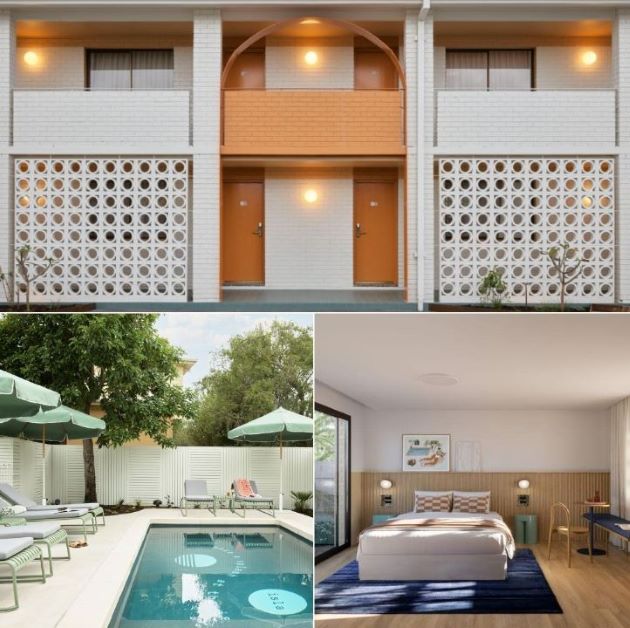The appeal of the Australian motel is luring investors and developers looking to capture the upside of the land-rich ageing asset class as more Aussies spend their holidays at home.
Once the mainstay of the Aussie driving holiday, motels lost their lustre in the 1990s when hotel developments swamped the cities and regions.
But the ageing asset class is experiencing a renaissance.
ResortBrokers managing director Trudy Crooks says they were ordinarily selling about 100 motels a year, but the pace has picked up significantly in 2022.
More listings are hitting the block than ever and Crooks says it’s a mix of developers and investors looking at the asset class through a new lens leading the charge. But it’s not just a land-banking exercise, according to Crooks.
ResortBrokers recently sold the Port Denison Motor Inn in Bowen in an off-market deal for more than $5 million.
And while the price tag alone was impressive, Crooks says Eureka Group Holdings, who put its foot on the property, were planning to convert the motel into a retirement village.
Crooks is forecasting more of this repositioning into the future.
“Motels were not built on premium land when they were built 30 years ago, but obviously that’s moved,” Crooks said.
“Motels are now on prized land where towns and cities have grown around them. They also often have large rooms and are on big parcels of land … Port Denison in Bowen is a good example of that.
“We will see more of this over the coming years as motels are converted into boutique hotels—as we are seeing up and down the east coast—as well as retirement villages.
“The average motel room is 30sq m, while the average 4-star hotel room is 22 square metres. They’re big and they’ve got big development potential because of the size of the land.
“It stacks up for Eureka’s model.”
The Isla, a Bateman’s Bay boutique 1970s motel, has received a facelift and a new lease on life as tourists flock to the rejuvenated 18-room accommodation offering.

▲ The Isla at Bateman’s Bay has been repositioned as a boutique motel for a new generation of tourists.
And there are more motel makeovers on the way with Knox Developments looking to reposition the Surfbeach Motel and Sydney pub baron Justin Hemmes buying up the Whale Inn at Narooma last year.
Real estate investor Ben Davidson, along with two business partners, recently acquired the Eco Village Mission Beach motel for almost $3 million, which they are planning to renovate and reposition.
“The value of Eco Village was the location and proximity to the beach—without any improvements the land parcel is pretty irreplaceable,” Davidson says.
“It’s a good-sized smaller property with flexibility in terms of what it can handle. We can create a product and market it to a niche demographic.”
Davidson also owns a motel at Port Macquarie that he and a business partner successfully renovated and repositioned.
But the opportunities are becoming more competitive. Crooks says the asset class is experiencing yield compression as more developers and investors dive in.
“The profitability of them means that a motel may not be the highest and best use of the land,” she says.
“It used to be a freehold motel in a capital city had a yield of between 14 and 15 per cent, and the more regional you went the higher that would get.
“But now you’re anywhere between 10 and 12 per cent.
“There’s definitely new players entering the market and land banking.”
ResortBrokers is currently marketing the iconic Coolangatta Pink Hotel, one of the most Insta-worthy motels in the country, via an expressions of interest campaign.
▲ Coolangatta’s iconic retro-inspired Pink Hotel is on the block, celebrating the heyday of the driving holiday in Australia.
It opened in 1963 as The Ocean View Motel and was restored to its retro glory in 2018.
“Old-school hotels and motels are making a huge comeback around Australia because of that sense of nostalgia they offer, and nowhere is this more acute than on the Gold Coast where many Australians spent their childhood holidays in similar properties,” ResortBrokers’ Greg James says.
“Here you have an outstanding asset, in an unbeatable location, along Coolangatta’s main street and overlooking the ocean, minutes from the world-class beaches of Greenmount, Coolangatta, Kirra, Rainbow Bay and Snapper Rocks.”
Ray White Commercial head of research Vanessa Rader says commercial properties still presented good returns if investors are prepared to move further up the risk curve.
“Assets which are under-let or have vacancies could be an opportunity for buyers looking to capitalise on the rising holding costs for landlords,” Rader says.
“Value-add assets, or those with alternative development opportunities, are likely to draw attention from some investors looking to profit from changing market conditions.”
Article source: www.theurbandeveloper.com
from Queensland Property Investor https://ift.tt/U9khVXl
via IFTTT